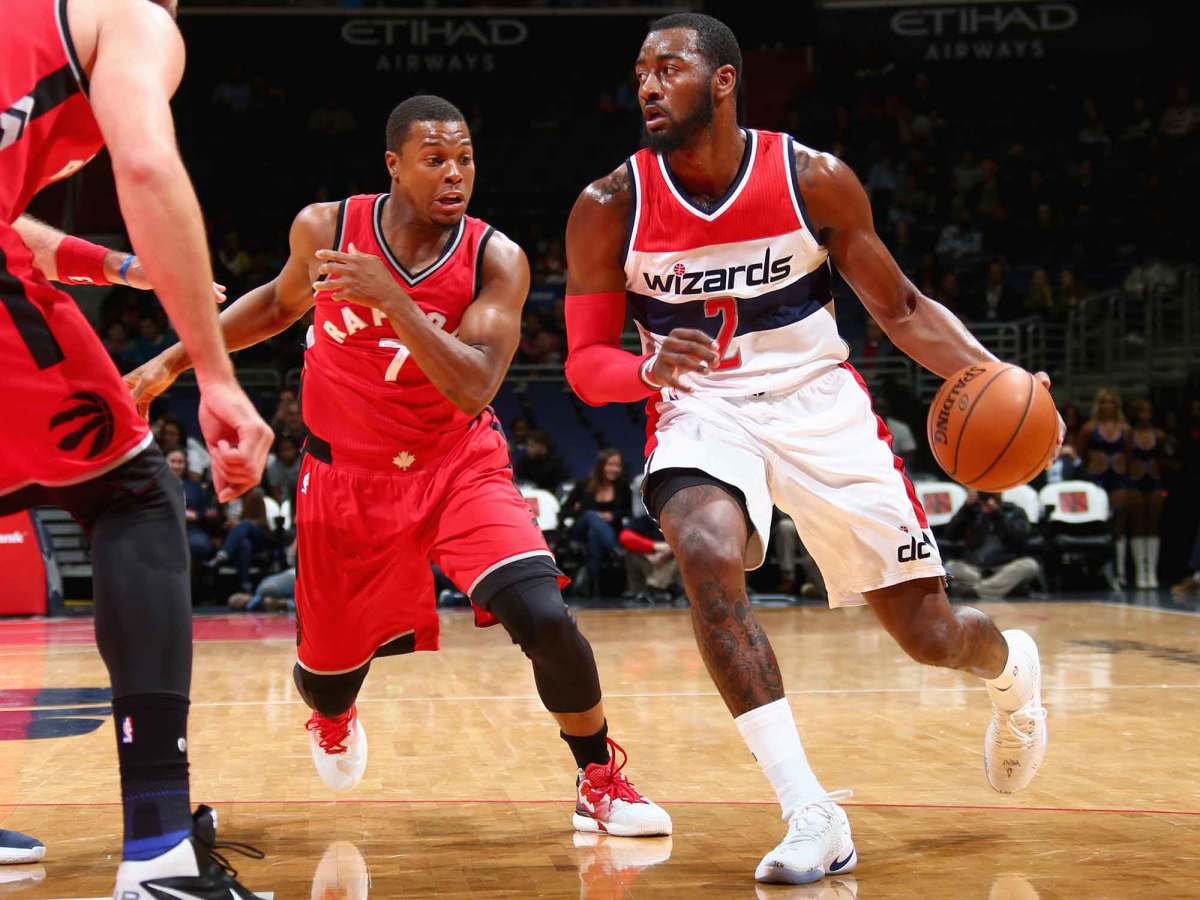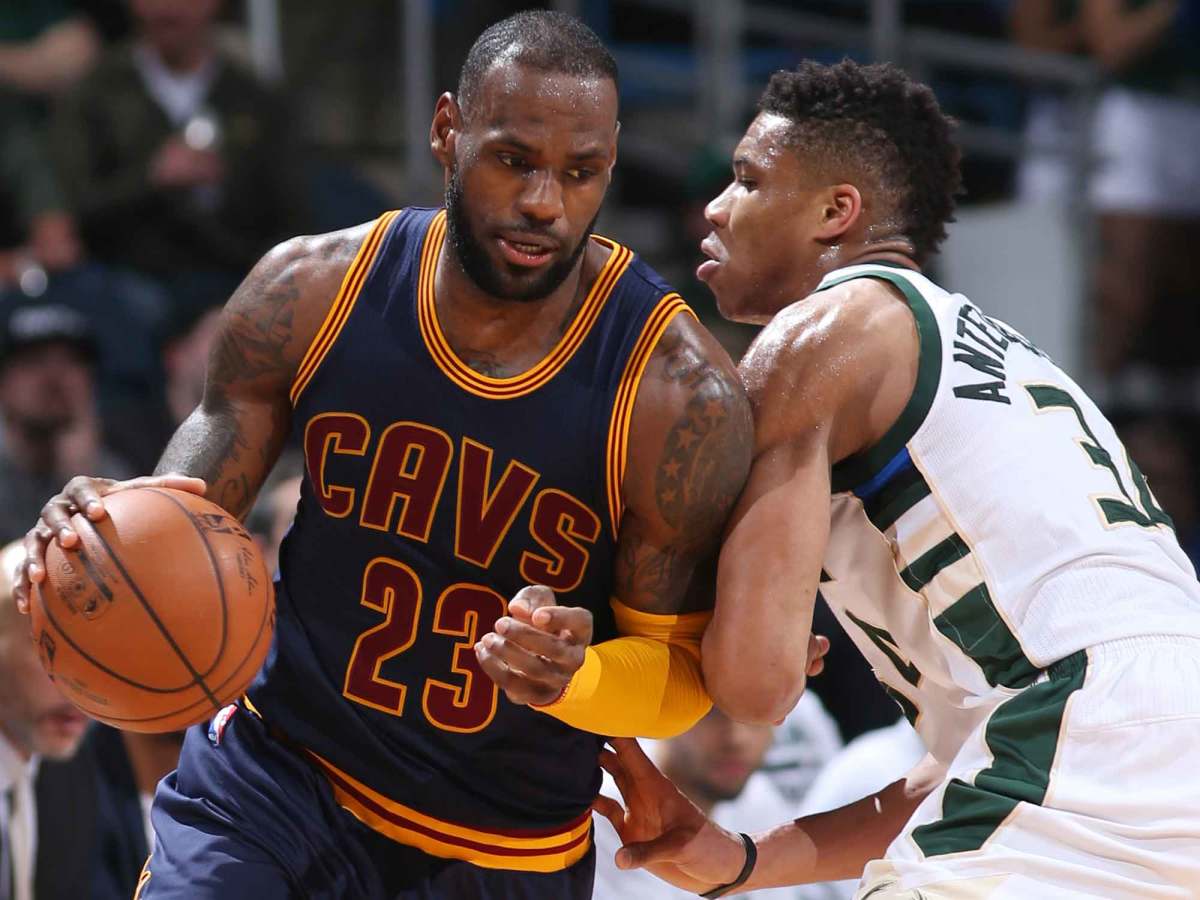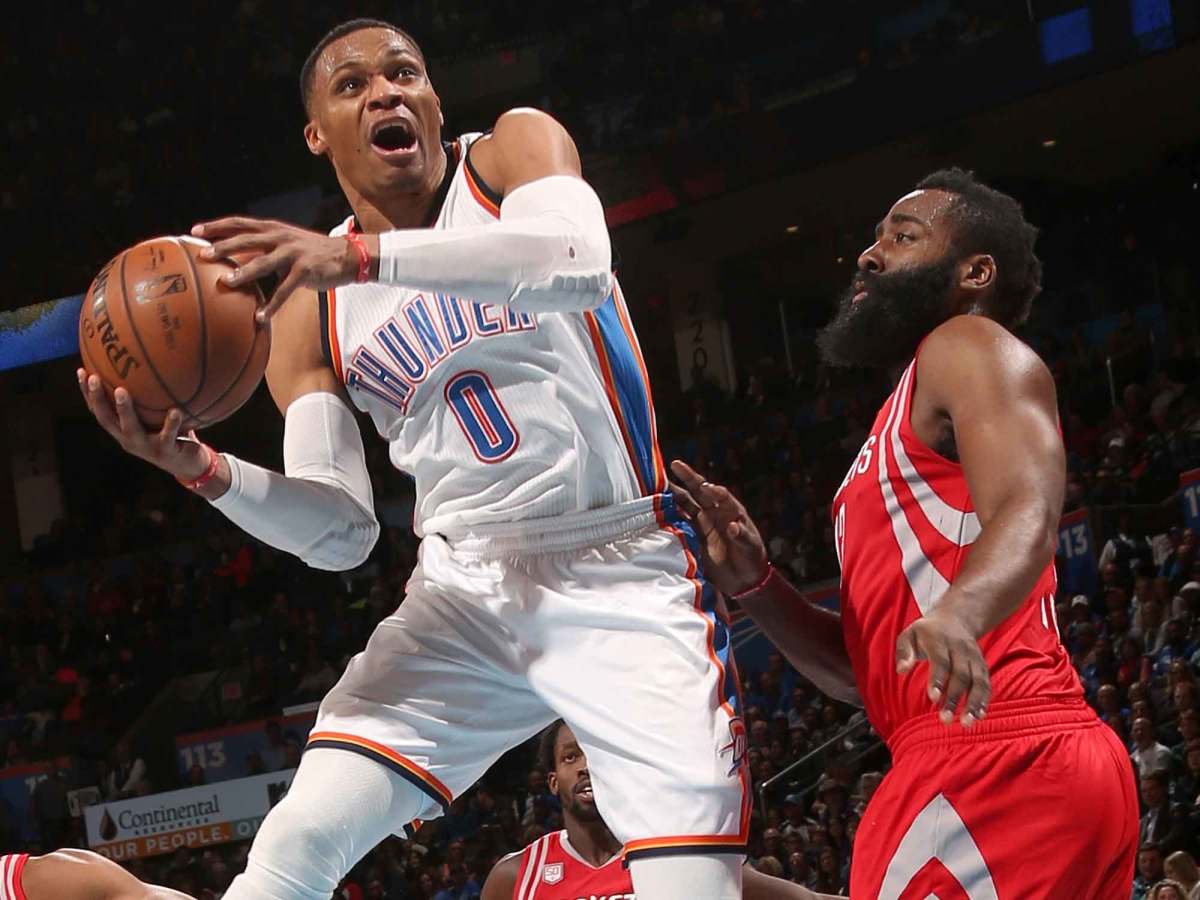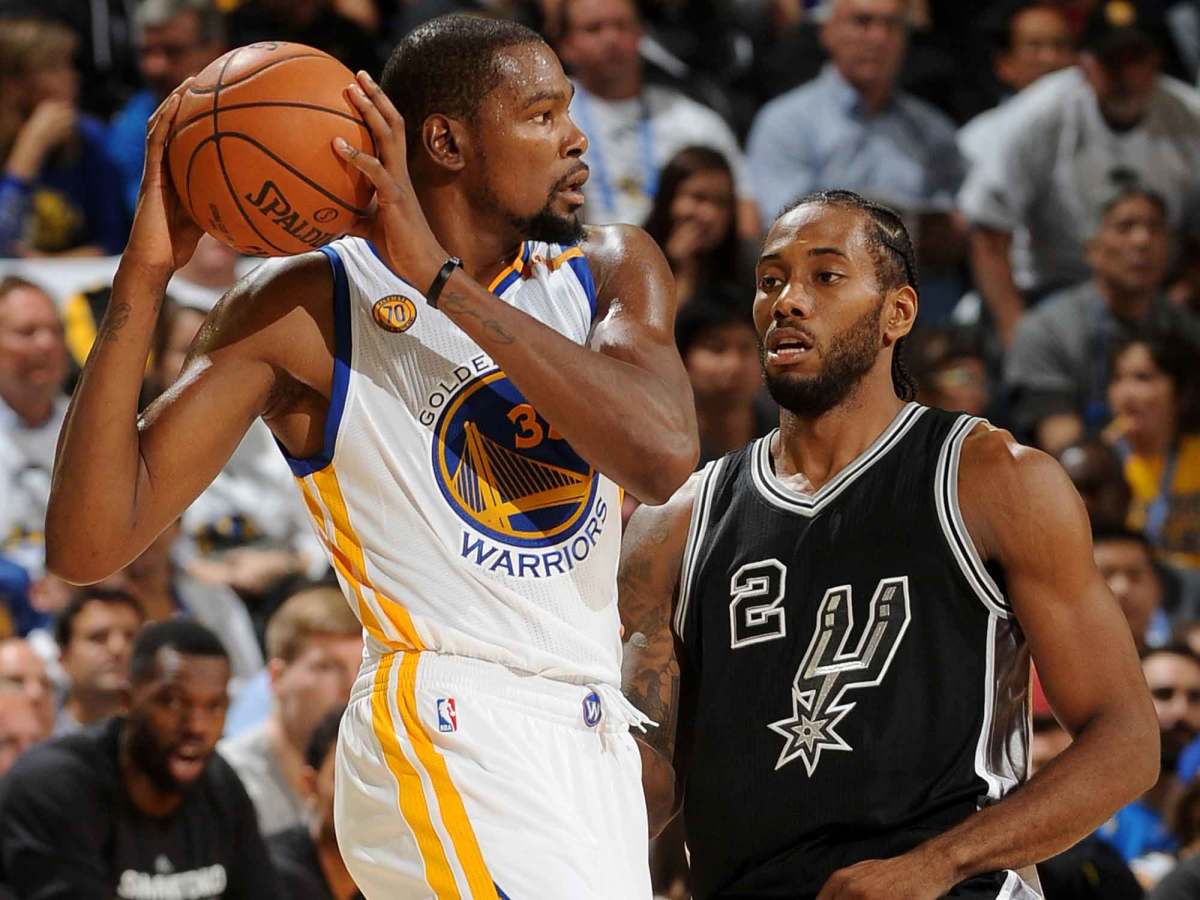The Crossover's 2017 NBA All-Star Starters

With the 2017 NBA All-Star Game just one month away, and the official starters set to be announced on Thursday, here is part one of The Crossover's deep dive into the most deserving candidates for the East and West rosters.
Making these picks involved weighing a number of factors, including each player’s statistical performance, impact on his team, and his team’s record. A player’s health, games played, and minutes logged were also taken into consideration. Picks were made based on 2016–17 performance only.
The Crossover's All-Star ballot was submitted Friday as part of the league’s official voting process and included as part of the new media panel vote, which makes up 25% of the overall vote this season (25% went to the players and the remaining 50% belonged to fans).
Without further ado, here are our picks to start in New Orleans next month. Check back Thursday for reserve selections.
(All stats and rankings are through Jan. 17.)

Eastern Conference
Backcourt: Kyle Lowry (Raptors) and John Wall (Wizards)
LeBron James aside, Lowry (22.2 PPG, 7.2 APG, 5 RPG) is the East’s most deserving starter, averaging career highs in scoring and rebounding in a contract year. The two-time All-Star trails teammate DeMar DeRozan in scoring and Player Efficiency Rating (PER), largely because of DeRozan’s 21+ FGA per game, but the impact numbers clearly reveal his standing as the most important and deserving Raptor. Lowry ranks No. 1 in the East in Win Shares (behind Jimmy Butler) and tops the conference in Real Plus Minus (RPM). Toronto’s offensive rating also improves by 11.4 points (and its defensive rating by 2.6 points) when he’s on the court, thanks in part to his strong performance leading second-unit players. DeRozan, meanwhile, has a mediocre RPM, and the Raptors perform worse from an efficiency standpoint offensively and defensively when he’s on the court.
Lowry’s tenacity, outside shooting, and ability to balance his own scoring with his playmaking makes him the driving force behind the league’s No. 1 offense and the East’s No. 2 team. No-show artist Derrick Rose drew nearly as many fan votes as Lowry, which should make all knowledgeable basketball observers weep for our planet’s future.
The second starting backcourt spot will justifiably prompt significant debate, as Wall, Kyrie Irving, Isaiah Thomas, Kemba Walker and DeRozan all have cases. While Wall (22.9 PPG, 10.1 APG, 4.6 RPG) seemed like a borderline snub as recently as a month ago, when Washington was mired in an early-season funk, he’s stepped up his game and helped the Wizards climb back into the East’s playoff picture. Like Lowry, he improves Washington’s performance on both ends, ranking second among East guards in RPM, improving his team’s offensive rating by 10.4 points and its defensive rating by 3.1 points when he’s on the court.
Thomas has the best case among the other candidates—Boston is the No. 3 seed, he leads East guards in PER, he’s the top scorer on a top 10 offense, and he’s the league’s most prolific late-game scorer—but he’s a major net-negative defensively. Wall’s more complete game, and his ability to lead Washington back to respectability with relatively little help, earns him the nod.

Frontcourt: LeBron James (Cavaliers), Giannis Antetokounmpo (Bucks) and Jimmy Butler (Bulls)
James (25.6 PPG, 7.8 RPG, 8.1 APG) remains the best all-around player in the world and by far the East’s top talent. The leading vote-getter in the fan process, James captains the East’s best team and pilots the conference’s second-best offense. While the 32-year-old James’s per-game numbers are spectacular, they are but a fraction of what he’s capable of when going full bore. Put it this way: James’s fourth gear is everyone else’s sixth gear, and he’s a no-brainer selection for his 13th consecutive All-Star Game.
Giannis Antetokounmpo: The Most Intriguing Point Guard In NBA History
Antetokounmpo (23.4 PPG, 8.7 RPG, 5.6 APG) has been a revelation… for, like, the third year in a row. But the true breakthrough is now for the Greek Freak, who aces the advanced stats, ranking third in PER, seventh in RPM, and eighth in Win Shares. Aside from a dependable three-point shot, there’s few holes in the 22-year-old's game. Antetokounmpo who has a superstar’s ability to be everywhere at once whether chewing up space in the open court, closing out on shooters, or pounding the glass. The runaway favorite to win Most Improved Player has allowed the city of Milwaukee to seriously dream about winning a playoff series for the first time in ages, and he’s rushed to the front of the line when it comes to the “Best Player in the East once LeBron finally fades” conversation. Kudos to the fans for showering him with votes in recognition of his emerging greatness; Antetokounmpo is easily this year’s most deserving first-time All-Star.
There’s little debate to be had over the third frontcourt selection, even though the maddeningly inconsistent Bulls are currently below .500. Without Butler (24.9 PPG, 6.8 RPG, 4.6 APG), Chicago would be a strong candidate for contraction, as he leads the conference in Win Shares and ranks second to Lowry in RPM. The rare player who can win a game with a buzzer-beating three or by diving on the ground to steal an inbounds pass, Butler separated himself from other candidates—like Paul George, Paul Millsap and Kevin Love—with his play-to-play intensity, his aggressiveness off the dribble, his skill as a playmaker for others, and his ability to hold up under a heavy workload.

Western Conference
Backcourt: James Harden (Rockets) and Russell Westbrook (Thunder)
Yes, there are legitimate cases to be made for Stephen Curry and Chris Paul (before his injury). Curry is producing close to his 2015 MVP numbers and playing a major role on a team that’s on track for 70 wins. Paul is still the most complete two-way point guard in the NBA, leading the league in RPM and keeping the Clippers in line for home-court advantage despite Blake Griffin’s extended injury absence.
Those are strong arguments. The only problem? The arguments for Harden and Westbrook are stronger. The NBA’s top two MVP candidates continue to pile up numbers that have never been seen before during the modern era, not even from James. Harden (29 PPG, 11.5 APG, 8.1 RPG) has the first 29/11/8 stat line since Oscar Robertson in 1965. Westbrook (30.7 PPG, 10.3 APG, 10.5 RPG) has the first 30/10/10 stat line since Robertson in 1962.
Chris Paul's Latest Injury Creates Long-List Of Implications For Clippers
Both players fare well across the major advanced stats—ranking in the top 10 in Win Shares, top 5 in PER and top 15 in RPM—while leading their respective teams to unexpected heights. A retooled Rockets team is the league’s biggest surprise, while the Kevin Durant-less Thunder have held on to a winning record thanks in large part to Westbrook’s ability to maintain a respectable level of efficiency despite a record-setting 41.8 usage rate. In Houston, Harden has spiked his team’s offensive rating by 9.5 points when he takes the court; In Oklahoma City, Westbrook has pumped up the Thunder’s rating by 8.8 points while also improving its defensive rating by 8.1 points.
The impressive feats just go on and on. Both players have 50-point games. Heck, both players have 50-point triple-doubles! Westbrook has attempted 116 clutch field goal attempts this season, nearly double any other NBA player. Harden has been the focal point and chief decision-maker for a Rockets offense that is attempting 40 three-pointers per game (the record entering this season was 32.7). Harden leads the league in minutes; Westbrook is third. Westbrook leads the league in usage; Harden is fifth. They rank one-two in free throw attempts, touches and assists. On and on.
There’s just no need to overthink these two. The former Thunder teammates should line up side-by-side in New Orleans.

Frontcourt: Kevin Durant (Warriors), Kawhi Leonard (Spurs) and Draymond Green (Warriors)
Even if he trails his former OKC teammates on most MVP ballots, Durant (25.8 PPG, 8.6 RPG, 4.7 APG) easily qualifies as a West starter. He is the best player on the league’s best team, a Warriors squad that is not only on pace for 70 wins but also possesses a better point differential through 41 games than last year’s 73-win outfit. He is the leading scorer on the West’s best offense, an attack that is threatening to set a new NBA record for assists. He is an established MVP and perennial All-NBA selection who is having perhaps his most refined season to date, thanks to career-highs in rebounding and blocks. And he remains a master of scoring efficiency, beating defenses at the rim, at the charity stripe and from beyond the arc.
As is the case with the NBA’s true A-listers, Durant’s case holds up no matter how deep one digs. The West’s leading vote-getter ranks second in Win Shares, seventh in PER and 12th in RPM, and he improves Golden State’s offensive efficiency by 5.9 points when he takes the court. The only thing holding back Durant from even more eye-popping individual production this season is Golden State’s ability to keep his minutes load well below the heights it reached during most of his OKC tenure. Not even some late-game struggles in his new Bay Area digs can deny Durant the first crack at starting among the West’s frontcourt candidates.
Draymond Flattens LeBron As Warriors Reassert Dominance In Blowout
If Leonard (24.6 PPG, 5.7 RPG, 3.1 APG) continues increasing his scoring average, PER and usage rate every season—as he has each year during his six-year career—industry analysts project that he will finally receive the credit he deserves roughly halfway through the 2020-21 season. San Antonio’s post-Tim Duncan transition has gone as smoothly as could have been expected thanks to Leonard’s ability to shoulder that extra offensive burden while also erasing his individual matchup on the defensive end.
Bottom line: If math nerds can invent a formula to measure basketball effectiveness, Leonard will find a way to crack the code. Leonard ranks fourth in PER, fifth in Win Shares and sixth in RPM, making him the only player to rank in the top six in all three categories. Meanwhile, Leonard is the best offensive player on a top-five offense and the best defensive player on a top-five defense, making him the only player who can claim both of those roles. Too many complicated numbers? Fine. Leonard’s doing quite well by winning percentage, too, with San Antonio on track for 64 wins, more than anyone except Golden State. This year’s MVP field is crowded, but Leonard deserves his slice of the gushing praise. Like Durant, he’s a starter, no questions asked.
The West’s third starting frontcourt spot arguably makes for an even richer debate than the East’s second backcourt spot. Comparing the top candidates—Green, Anthony Davis, Marc Gasol, DeMarcus Cousins, Rudy Gobert—amounts to weighing apples, oranges, pears, nectarines and pineapples.
Green (10.7 PPG, 8.7 RPG, 7.7 APG) is an RPM stud, a Defensive Player of the Year candidate, and a deft playmaker who is arguably the most irreplaceable player on a potential 70-win team. Granted, he might not be able to score like Davis and Cousins and he might not be as efficient of an offensive weapon as Gasol and Gobert. But none of the other candidates play such a central distributing role for an elite offense or defend multiple positions at a high level for an elite defense.
While Green’s penchant for drawing attention, both good and bad, is the subject of regular scrutiny, the consistency of his effort is worthy of regular praise, too. Green ranks eighth in RPM and 17th in Win Shares, and the Warriors’ play noticeably better on both offense and defense when he’s on the court. Gobert and Gasol have done admirable work keeping their teams in the playoff mix due to injuries, while Davis and Cousins continue to be one-man wrecking crews for franchises that haven’t yet found a way to build or maintain a winning culture around them. But only Green can lay claim to being a stabilizing two-way force and locker-room leader for a team that has a chance to finish with a top-five record and top-five point differential of all-time. The Warriors wouldn’t be nearly the same team without him, given the defensive hole his absence would create, and none of the other candidates—as impressive as they are—could handle his many varied responsibilities.
The good news: there’s sufficient room on the reserves to make sure all four of the guys mentioned above—Davis, Gasol, Cousins and Gobert—join Green in New Orleans.
